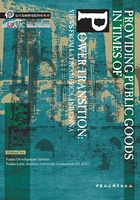
Conclusions
If the previous assumptions hold at least some water,a number of relevant conclusions regarding Latin American states’ orientation towards,and possible participation in,the cooperative provision of global public goods can be drawn.
First,the latter may have more to do with discursive dynamics than with rationalist criteria oriented towards the expected benefits of global public goods.In fact,this point should not be controversial,as mainstream public goods theories today very much assume a key role for legitimacy criteria in political decision-making (Holcombe,2000).
Second,those normative,culture-dependent criteria underlying regional policymaking may not be static,and may undergo cyclical as well as sometimes spontaneous change.This is the reason why conventional theories of cultural norms in International Relations can sometimes be surprised by discontinuities of normative orientations in Latin American regional politics.
Third,the specific orientations legitimized by different discursive formations need to be taken into account when analyzing the concrete policies of different regional actors.In other words,when the ratio-nalist discourse dominates public debate in a Latin American coun-try,somewhat rigid adherence to the precepts of political or economic doctrines might be expected—even if they may run counter to expe-cted expressions of rational self-interest.The emphasis on liberalism in the Pacific Alliance,for example,has sometimes been contrasted to its limited or even,in some cases,damaging material impact through the reprimarization effects of free trade (Prieto and Betancourt,2014).When,however,“mantuano” discourse dominates,one might expect a high relevance of status questions both in the discussion of which public goods are to be provided as well as in the determination of individual countries’ contributions.This may lead,potentially,to the acceptance of interests expressed by actors considered as “social superiors”,but also to the possibly conflictual insistence on being accepted as a peer among equals due to “status anxiety” (Friedrichs,2016).And,of course,the temporary incidence of the savage disco-urse may complicate matters,especially when the principled resistan-ce to norms interpreted as Northern impositions takes the form of insurgent governments celebrating “ungovernability as a legitimating fiction” (Kingsbury,2013).
Finally,observers of Latin American politics should expect these different discourses to hybridize and mix,as well as to abruptly shift in terms of their particular relevance.Of course,these dynamics are hard to operationalize as well as difficult to categorize.In general,more research into norm cycles and contestation in non-Northern contexts is needed.The discussion undertaken in this chapter should at least lead to the assumption that any attempt to arrive at a stable consensus with Latin American states on the provision of global public goods should be prepared to take three dynamic cultural factors into account:firstly,the rationalist emphasis on adherence to intellectual doctrine; secondly,a “mantuano” tendency towards status considerations; and thirdly,the possibility of principled resistance to any universalizing normativity.
[1] Translated from Spanish by the author.
[2] “Mantuano” refers to the white-skinned descendants of Spanish conquerors in colonial Venezuela,who represented the landowning and political elites,and are strongly identified with this type of discourse (Carrero,2011).